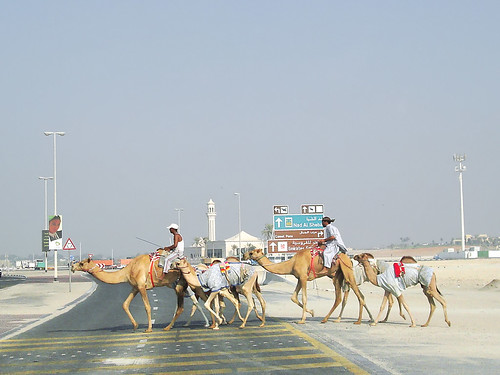The seventh consecutive World Economic Forum (WEF) meeting concerning Global Agenda is being held in Dubai. Its
purpose is to reproduce the triumphant innovations implemented in the United
Arab Emirates (UAE) on an international scope.
The WEF praised the prime minister and vice
president of the UAE who is also Dubai’s ruler, Sheikh Mohammad bin Rashid Al Maktoum for understanding that the most
important factor contributing to transformation is innovation. The WEF
explained that innovation today would be achieved by running efficient
institutions, implementing important policies, acquiring expert and specialized
skills and an effective economy where all parts collaborate to explore new ways
to do business. A creative and open economy, which is based on cultural
innovation, is the most rapid and prolonged way to enhance the UAE’s competitiveness on an international
level.
The three-day meeting was attended by more than one thousand people,
which amongst them were country leaders and pioneering business executives from
all corners of the world.
Discussions will address more than eighty issues concerning the world
and possible solutions to these issues will be suggested. The theme of the meet
has been named UAE Brainstorms for the World.
The WEF stated that has successfully created a developed and growing
economy due to the approaches and policies it has implemented in the country.
The approaches adopted by the UAE posed as effective when trying to battle
with challenges faced internationally, and successful in redefining the globe’s
development plans.
The meeting was held at a significant period of time, when the entire
world needs to battle and solve issues that arise like humanitarian, health,
unemployment, food, poverty and extremism, lack of recourses and energy
problems.
As a result, of growth and development projects within the Gulf region,
the Middle Eastern countries have also benefited by attracting attention by
potential investors and generally, the world. The WEF outlined that by
cooperating with the UAE and adopting approaches to grow, would be crucial in
finding solutions to important issues and redefining development throughout all
economies of the world.
The fact that the summit was held in Dubai further accentuates the fact that the
city supports and is committed to solving international challenges and issues.
Dubai, like most of the emirates, has vigorously embraced and introduced
different ways to enhance innovation within the city. One of its best decisions
Dubai has taken is to hold the Dubai Government 2012 Initiative. The Dubai
Government 2012 was organized to implement technology in people’s daily lives.
Through the Dubai Government 2012 Initiative, the state has successfully created a new link between customers and
the government, supplying customer relations using a corporate manner as well
as establishing Dubai as the most technologically advanced city in the world
through adopting one hundred initiatives and more than one thousand
tech-related services.
The meeting lasted till the 11 November, and it focused on multiple
topics that are presently relevant like renewable energy, climate change,
energy security, entertainment, media, infrastructure, internet security,
innovation approaches and property. During the meeting the participants also
addressed other critical matters like health, humanitarian issues, refugee
issues, extremities and other such significant topics that the world is facing
currently.
The solutions and results that have been decided upon will be brought
forward in Davos at the World Economic Forum.
Source: http://www.lowtax.net/blogs/World-Economic-Forum-on-the-Global-Agenda-meet-begins-in-Dubai-572332.html
Source: http://www.lowtax.net/blogs/World-Economic-Forum-on-the-Global-Agenda-meet-begins-in-Dubai-572332.html



